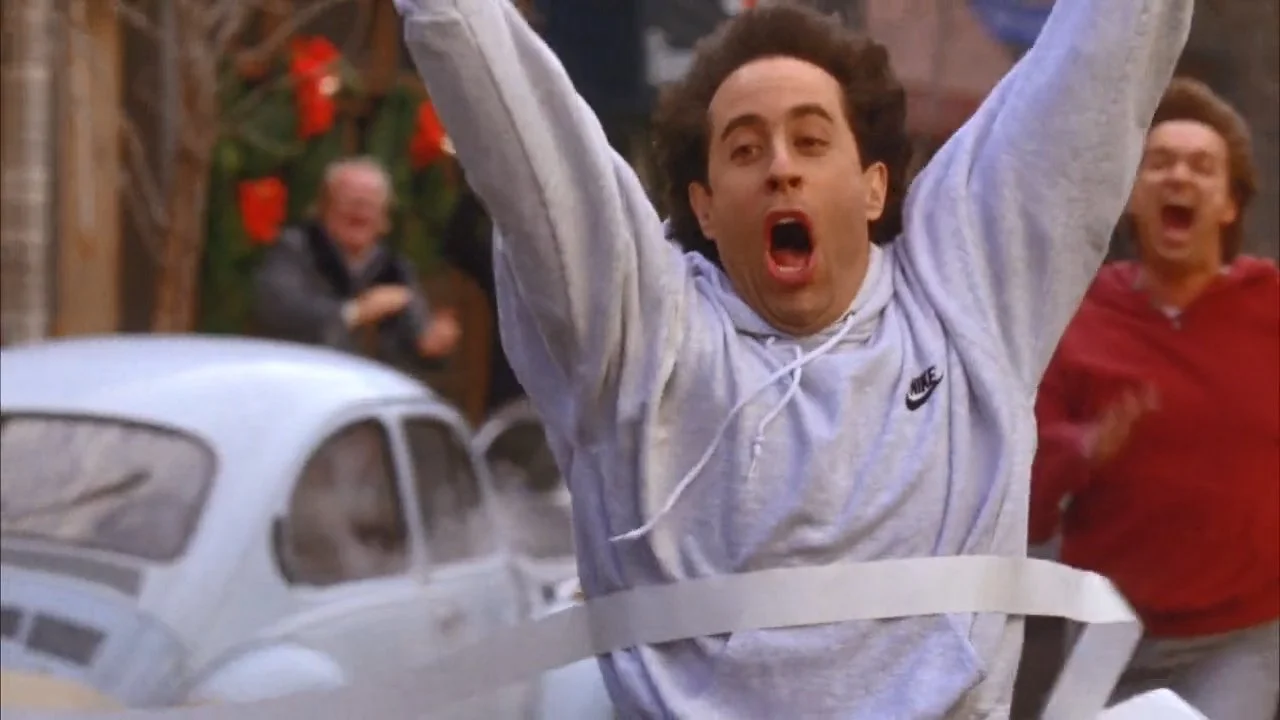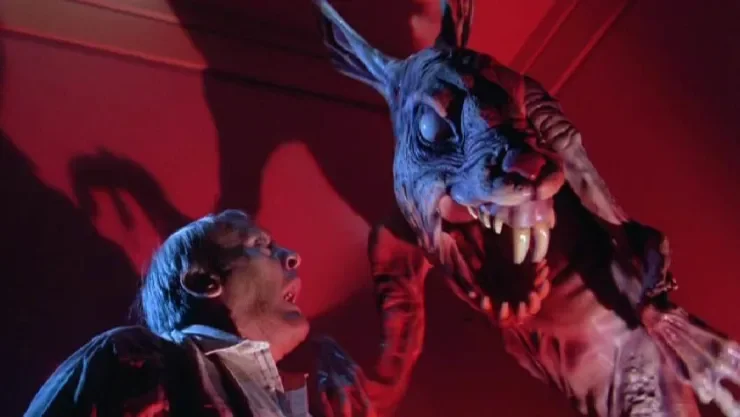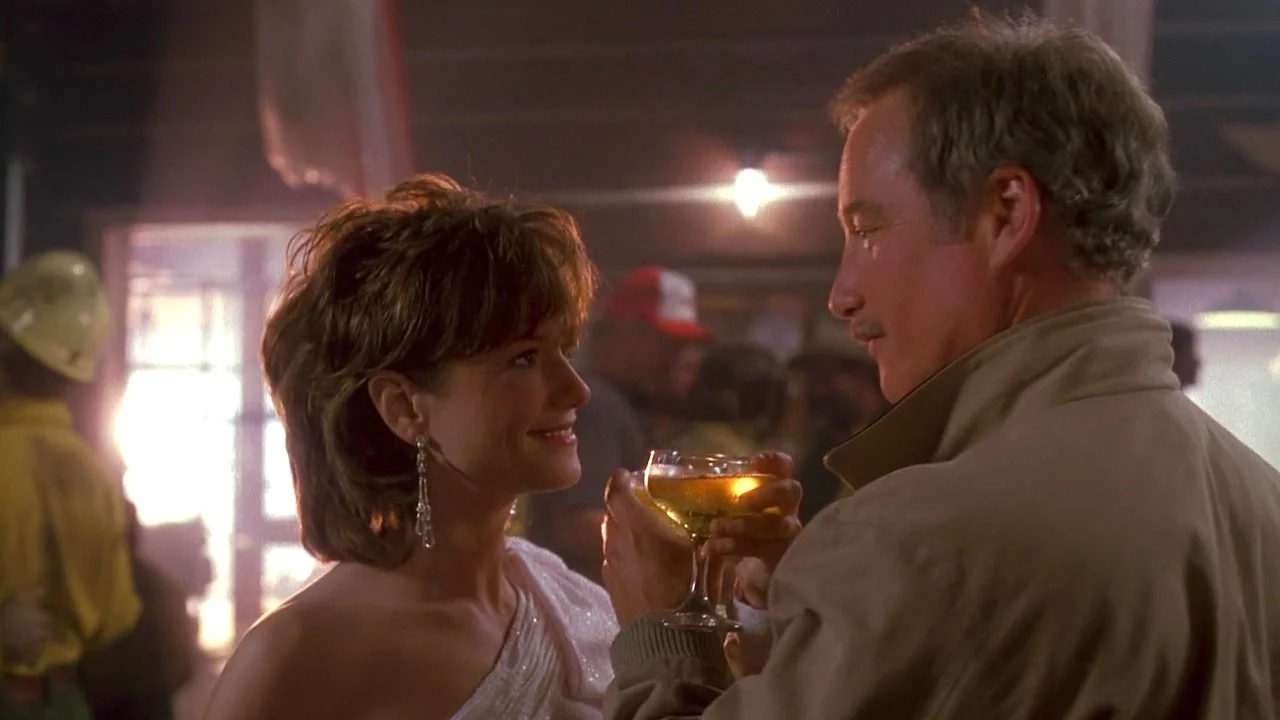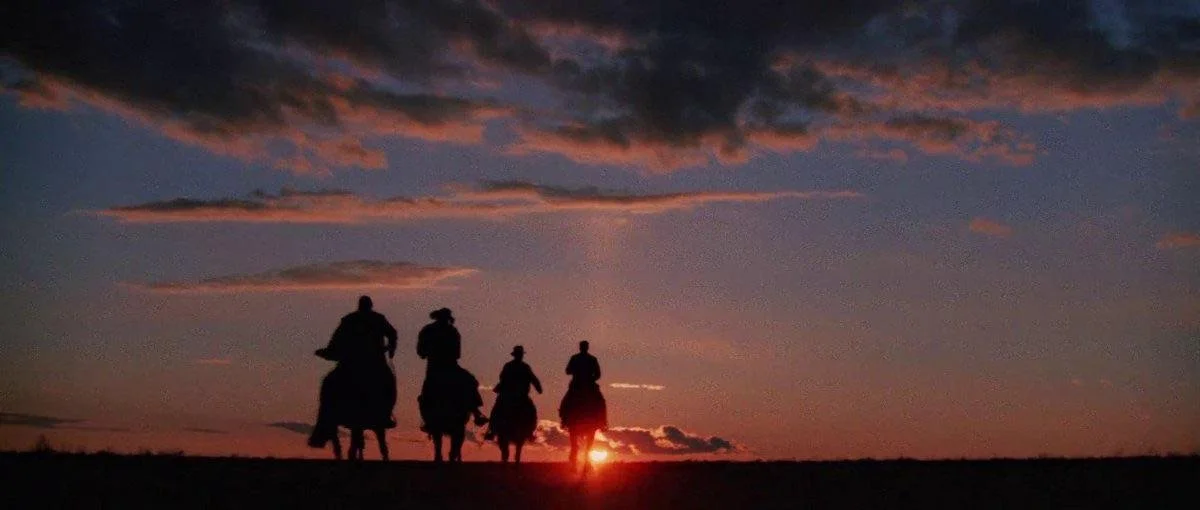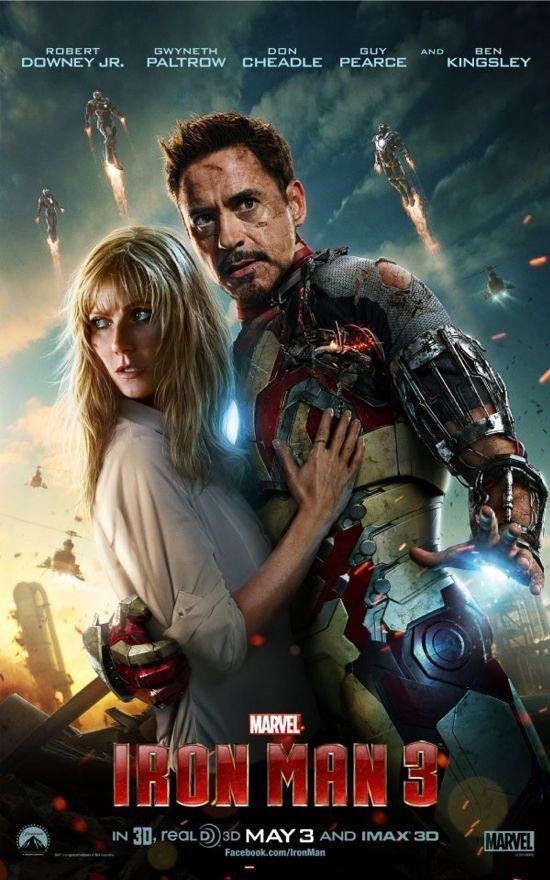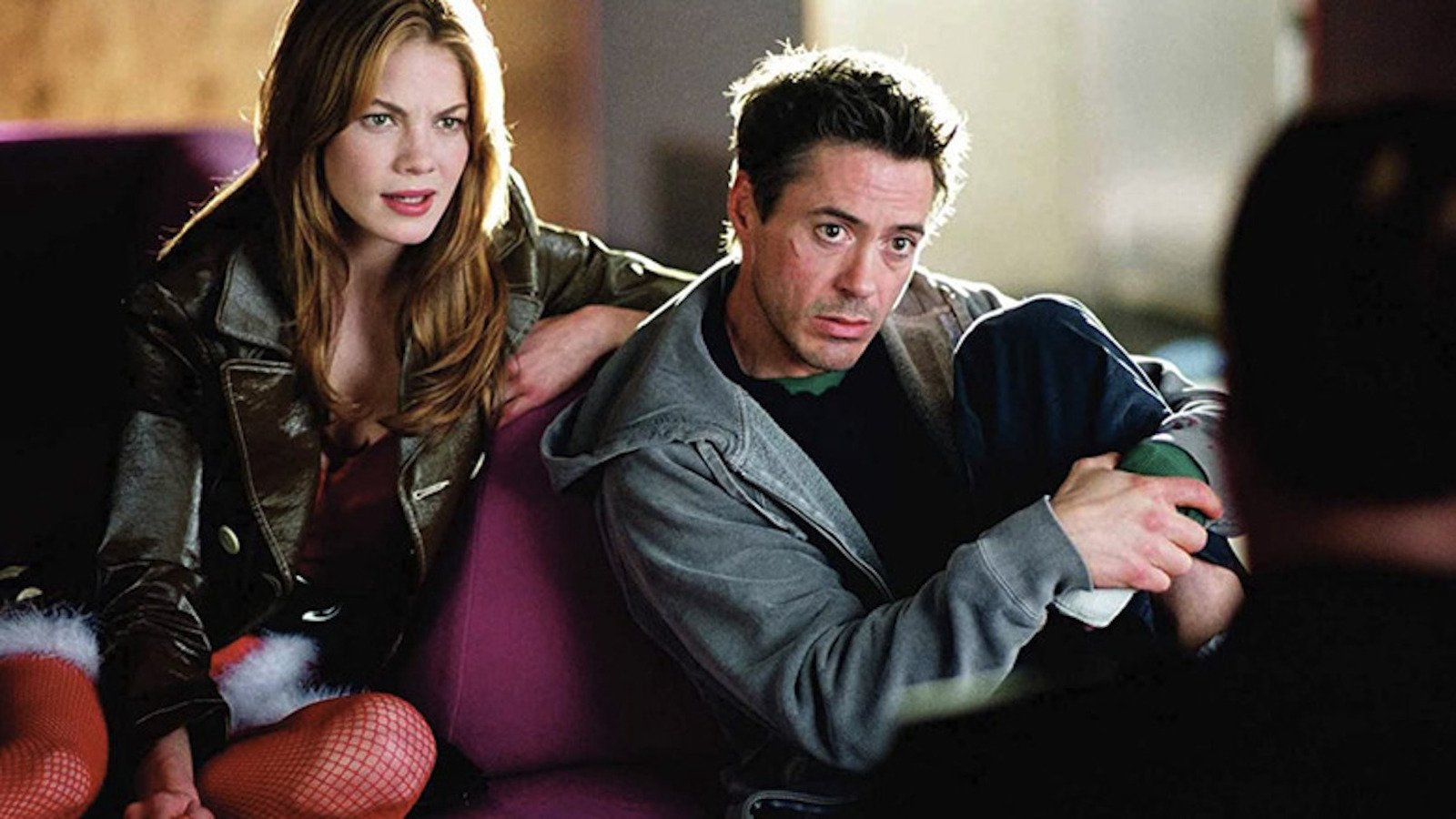Recent Articles
A Very (Shane) Black Christmas: and an IRON MAN 3 New Year!
This week, we close out the year by diving deep into shane Black and Robert Downey Jr.s OTHER collaboration. You may have heard of it. It probably even made you mad. But, in a franchise that tends to chew filmmakers up and spit them back out, it’s a singular jewel.
People don’t really like feeling like a movie is messing with them.
The last five years has blessed (cursed) all of us with near-constant STAR WARS: THE LAST JEDI arguments, even for people don’t give two shits about the now-sort-of-floundering space franchise. There are lots and lots of reasons why that particular blockbuster was so divisive that it still feels like people can’t shut the fuck up about it, but one of the most telling insights into why it rubbed people the wrong way actually came from a Film Crit Hulk treatise on the movie’s many unheralded virtues:
I was having a conversation with one of my local bartenders I love. We’ve had a lot of lovely, spirited bar arguments. Sports. Movies. You name it. And it’s always been fun and inclusive. But The Last Jedi is the first time I have ever seen him incensed. He kept yelling at us and talking about all the things that were so “stupid” about the film, and then proclaiming that the director “clearly doesn’t understand the tone of Star Wars!” He made this point particularly about the sense of humor in the opening Poe scene. It didn’t matter that I pointed out the tone was no different from Han’s off-the-cuff joke, “everything’s fine here… how are you?” as well as a litany of other moments. He finally just yelled, “I felt like the film was making fun of me!”
This sentiment of “that movie was making fun of me!” was expressed by others at the time. Cheo Hodari Coker, the show runner behind the Netflix LUKE CAGE series, went off at length in a Twitter thread (that I naturally can no longer find) about how the moment where THE LAST JEDI resolves THE FORCE AWAKENS' “cliffhanger” by having Luke toss his lightsaber off said cliff made him feel mocked for caring about that moment in the first place.
Now, I would argue that there’s no other way for that moment to resolve (imagine if THE LAST JEDI opened with Luke grabbing his lightsaber, telling Rey “let’s go”, and then wreaking havoc on the First Order, with the whole thing wrapping up in ten minutes; what a great movie!!!!), but Coker isn’t a stupid man, nor is he coming from a place of bad faith. He’s a smart and insightful creative and Star Wars fan who wanted to like Episode 8. And he didn’t. It’s worth paying attention to.
He didn’t like the feeling of being messed with. Nor did Film Crit Hulk’s bartender friend. Nor did many of the smart people I know who also didn’t like THE LAST JEDI very much. It’s what it is.
Of course, blockbuster sequels being spear-headed by filmmakers with a unique sensibility that immediately piss off half the audience by screwing with the format is nothing new. In the wake of the unprecedented blockbuster success of THE AVENGERS, it was time for Marvel Studios to begin its next phase of solo films to build up to the next team-up. First on deck: a third IRON MAN solo movie. After an extremely well-liked first installment in 2008, and a major step down in quality in 2010 with IRON MAN 2, Marvel needed to take a big swing to energize the franchise that started it all. And star/executive producer/mega-string-puller Robert Downey Jr. knew just the guy.
Enter Shane Black.
IRON MAN 3
Starring: Robert Downey Jr., Don Cheadle, Gwyneth Paltrow, Guy Pearce, Rebecca Hall, Ben Kingsley
Directed by: Shane Black
Written by: Black, Drew Pearce
Released: May 3, 2013
Length: 131 minutes
A year after the events of The Battle of New York, Tony Stark (Downey Jr.) is in a bad place. It turns out he never really recovered from his trip into space at the end of THE AVENGERS, nor from his confirmation that aliens exist and they want to kill us. He’s easily triggered into panic attacks, he’s mindlessly building iron suits in his basement and, most of all, he’s freaking Pepper Potts (Paltrow) out.
He’s picked a bad time to have PTSD, though, because there’s a new global threat out there, and his name is The Mandarin (Kingsley). He has the ability to hijack all U.S. television stations at any time to broadcast his taunting, disturbing messages; he also appears to have the ability to wreak havoc at will, setting off bombs and striking terror into the hearts of every American.
On top of everything else, a ghost from Stark’s playboy past appears to be returning to haunt him. Back in 1999, during a New Year’s Eve party in Switzerland, Stark blows off Aldrich Killian (Pearce), the awkward and disabled creator of the fledgling Advanced Idea Mechanics company, in order to make time with geneticist Maya Hansen (Hall), whose work on a project named Extremis may have unlocked the key to tissue regeneration. Now in 2013, Killian, who looks healthy, youthful and revitalized, returns to Stark Industries with an offer. AIM has taken off and he’s now trying head-hunt Pepper Potts to come work for him. Meanwhile, Hansen returns to Stark to inform him she works for AIM now, which means Killian has his hands on Extremis.
Jon Favreau (who also continues to play Happy Hogan both in this and in the MCU at large) was the original architect of the IRON MAN franchise, having directed the first two installment. However, Favreau tapped out of helming a third film by December 2010, opting instead to direct the never-completed MAGIC KINGDOM movie (no tears for Favreau, he’s clearly landed on his feet). Although he remained an executive producer on THE AVENGERS, IRON MAN 3 was going to need a new captain at the head of the ship.
Not long after Favreau’s departure, Downey Jr. hopped on the phone to contact the man who helped revitalize his career nearly ten years before. By February 2011, Shane Black was in final negotiations to direct and write the third IRON MAN movie. By March, Black was the director and co-writer on the script with Drew Pearce, who would go on to co-write FAST AND FURIOUS PRESENTS: HOBBES & SHAW and would do the story for MISSION: IMPOSSIBLE - ROGUE NATION. A roller coaster of a career, indeed.
IRON MAN 3 found itself in an interesting slot in the MCU at that time. It not only had to follow up the ensemble success of THE AVENGERS, it also had to recover from the disappointment that was IRON MAN 2, a film that both collapsed under its own world-building weight (the movie just stops halfway through to re-introduce Nick Fury and Agent Coulson) and cast doubt that Marvel Studios was going to be able to handle its own ambitions.
But the Tony Stark threequel is largely a success! It’s a movie with things on its mind, even if it does have to remember its ultimate four-quadrant obligations at the end of the day. The whole thing with Rhodey’s War Machine (Cheadle) being re-skinned into a red-white-and-blue Iron Patriot in order to do overseas merc work for the U.S. government is an outrageously potent metaphor coming from a cinematic universe that would have to play ball with the Air Force a little over five years later.
It’s also maybe one of the only features in the MCU that portrays a character actually dealing with all the shit he’s seen? There are little nods here and there throughout the franchise to residual trauma; the feeling of loss hangs over ENDGAME, Thor gets a moment in INFINITY WAR to process everything that’s he’s faced, there’s WANDAVISION on the TV side of things. But here, Tony Stark’s ultimate arc is “getting over PTSD”, and it takes him until the end of the movie to really achieve that. It’s to IRON MAN 3’s credit that it takes Stark’s emotional fragility at face value. One of the worst things about modern franchise filmmaking is that the stories so often boil down to being power fantasies, the desire to see our heroes kick ass and be reassured about how cool it is that they’re kicking ass and how cool YOU are for watching them kick ass. Here, Tony Stark gets talked down from a panic attack by a kid he’s just met. It’s profoundly uncool. It’s great.
Shane Black and Drew Pearce also understands that Tony Stark is infinitely more interesting than Iron Man. It’s no mistake that the strongest stretch of the film by far is its middle section where Stark is alone and stranded in the middle of snowy Tennessee with said strange kid, completely stripped of his suit. He’s back to having to use his substantial wits and smarts to get himself back to the West Coast and save the day. It’s something that kind of got lost previously in IRON MAN 2, which felt like all suits, all the time. Seeing Stark become more of a detective is a blast, and it feels like a running back of the dynamic Downey Jr. got to play in KISS KISS BANG BANG.
Also, the Christmas aspect you’ve come to expect from a Shane Black movie is in full force, and ramps up a notch once the movie moves from Malibu to snowy Tennessee. Actually, IRON MAN 3 is one of the rare blockbusters that makes New Year’s Eve a crucial plot point; as mentioned above, the turning of the clock from 1999 to 2000 is sort of the beginning of the end for Stark here. We also get a fun Christmas track near the start of the movie, a remix of “Jingle Bells” by Joe Williams. It can't hold a candle to THE LONG KISS GOODNIGHT’s X-Mas factor but it ranks high, especially since Marvel hadn’t really taken much advantage of seasonal moods up until really recently.
Finally, I’d be remiss if I didn’t mention that IRON MAN 3 is an oasis of musical identity in a franchise that has famously been accused of lacking it. Specifically, it features absolutely the grooviest end-credits music in the entire Marvel Cinematic Universe, a fitting Brian Tyler track that sums up the mood and swerve of the movie as much as anything else. Why, yes, I can dig it!
Of course, IRON MAN 3 isn’t perfect. At 130 minutes, it’s a long movie that feels longer; whether that’s a result of Black being given a higher budget and ramping up the spectacle and CGI in response, or just a symptom of the bloated franchise threequel is debatable (it’s likely a mix of both). There’s also some weird moments that only make sense if you keep up with Marvel’s corporate machinations; you’d be forgiven for not knowing that the only reason the movie introduces us to Wang Xuequi’s Dr. Wu in the first scene, only to never see him again until the closing seconds, is to serve an alternate Chinese cut of the film where Dr. Wu pimps out milk drinks and local industrial companies.
Then there’s the most famous thing about the movie, the moment that endures in conversation after a decade, a moment that to some degree the MCU is still trying to deal with.
That would be the Mandarin twist.
Specifically, it’s the revelation that the big, scary, bin Laden-esque Mandarin character is, in reality, a drunk, loser actor named Trevor Slattery, nothing more than a puppet for the REAL bad guys operating in the shadows. It’s notable the wild swing Kingsley takes in his performance here, going from cool and calculated in the beginning, to a broad, burping, nearly cross-eyed cartoon character by the end.
Needless to say, many people were pissed. To get an idea of the general sentiment, check out the Honest Trailer for IRON MAN 3 sometime. It wasn’t a universal opinion, but it seemed to me that even people who liked the movie seemed to hate that moment (my 2013 memories are a little fuzzy, but as I recall, the group I saw it with was split right down the middle on it).
The reason I hear most often to explain the distaste for this decision is that it wiped out a major villain from the comics and replaced him with both a cartoonish asshole and a bland, unsatisfying corporate baddie. However, I have to wonder if it just goes back to the idea of not wanting to feel messed with. Here I am, really enjoying this modern update to a somewhat problematic comic arch-nemesis, and then the rug gets pulled from under me. How is that fair?
With about ten years of reflection, I can concede that the Mandarin twist falls short of something like THE LAST JEDI’s anti-twist regarding Rey’s parentage, a move that built carefully towards the film’s greater point about the Force being accessible to everybody, even a wayward orphan girl on the outskirts of the universe. Here, The Mandarin being a drug-addicted dork actor named Trevor is admittedly just a rug-pull for the sake of a rug-pull. “You thought he was this, but he’s actually this! Got you!” It also puts the film, and the MCU at large, in a hole it can’t quite get out of. As a result of this twist, there’s no longer a real compelling villain at the middle of it all (Killian ultimately doesn’t really fill the gap). It also took a major Marvel villain off the board, and the studio bought the twist back almost immediately with the ALL HAIL THE KING short before casting Tony Leung as the real Mandarin in SHANG-CHI AND THE LEGEND OF THE TEN RINGS.
But, at the same time, the fact that Marvel allowed Black to do the rug-pull anyway showed a willingness of the studio to hand over the keys to a filmmaker to let him do his thing he was theoretically hired for. And that might be the most miraculous thing about IRON MAN 3: it’s most definitely a Shane Black film. It’s set during Christmas, it pairs our lead with an unlikely partner (at least for part of the film, and it’s naturally the best stretch), and it plays on your expectations of an action film with many moments of subversion built and baked into the script; it’s no surprise that the biggest laugh of the movie comes from a henchman suddenly pleading for his release, stating “I hate working here, they’re so weird”.
Another kinda beautiful thing about Black’s creation here: there’s not a whole lot of world-building for future MCU installments. It seems utterly impossible for a mega-franchise that can often feel like homework nowadays, but outside of maaaaybe a little tease towards Pepper becoming Rescue like five years later (bet you forgot that happened in ENDGAME) and Slattery’s big return in SHANG-CHI, there aren’t a whole lot of threads here that contribute to The Big Marvel Story. It’s a stand-alone swan song for Tony Stark as a solo lead.
If anything, IRON MAN 3 concludes by closing a door future movies would have to reopen. It ends with Tony Stark finally getting the shrapnel in his heart removed, and his arc reactor thrown into the ocean. Despite the final line of the movie being “I am Iron Man”, the heavy implication is that Stark is retiring the persona, his soul being finally freed of the ghosts of his past and the burdens of his present.
Of course, it will come as no surprise to see Iron Man zip-zap-zopping away in the air the next time we see him, in the opening minutes of AVENGERS: AGE OF ULTRON. The Big Marvel Story At Work! I tease, but it does take some of the punch out of a movie’s bold storytelling choice when the next guy has to undo or completely ignore them (another parallel to be drawn here to STAR WARS’ final two chapters).
Still, IRON MAN 3 takes its place next to CAPTAIN AMERICA: THE FIRST AVENGER, THE AVENGERS, THOR: RAGNAROK, BLACK PANTHER and the two GUARDIANS OF THE GALAXY films as the list of Marvel Cinematic Universe films that feel completely and truly informed by the man behind the camera (note: this doesn’t mean these are the only good ones, nor is it necessarily slander against the ones not listed, please no fights going into the new year).
It was also enough of a success to bring Black back to his rightful place as the oddball writer of Hollywood. 2016’s THE NICE GUYS and 2018’s THE PREDATOR would follow; one was quite beloved, the other…wasn’t, but completely missing sometimes is the consequence of taking big swings.
The MCU has changed a lot since 2013, some for good (the makeup of their on and offscreen talent has finally diversified; they admittedly nailed the landing with ENDGAME) and some for bad (the fact that Scorsese has to take a meeting with Iger like some sort of mafioso every time he lodges a valid complaint about the MCU; the CGI is starting to look really rushed, a consequence of their actively hostile business practices). As the portfolio of lead heroes kept expanding (and Downey Jr.s’ price tag kept rising), we never did get another movie with Tony Stark as the lead. You sometimes wonder what would have happened if we had gotten an IRON MAN 4 with a returning Shane Black at the helm.
Then again, you take a look at something like THOR: LOVE AND THUNDER and you start to recognize that sometimes lightning in a bottle is just that.
Maybe messing with everybody once was enough.
KISS KISS, BANG BANG: A Very (Shane) Black Christmas!
This week, both Shane Black and Robert Downey Jr. find themselves on a rehabilitation project, one that more or less altered the course of blockbuster cinema. Ladies and gentlemen, 2005’s KISS KISS BANG BANG!
One of the more exhaustively discussed recent trends in the film industry is the sudden rise and complete dominance that Marvel Studios, The Walt Disney Company, and superhero movies at large have on the current market. There are little pieces of data to suggest that the stranglehold may be loosening a bit (Phase 4 of the MCU has been notable more for its quantity than its quality), but the fact remains at this point in time that any sort of discussion of modern moviemaking must filter through the Avengers Academy first.
To that end, even the remaining industry titans of an older time are somehow linked more to capes and cowls than their actual body of work these days. The names “Martin Scorsese” and “Quentin Tarantino” can barely be discussed without their semi-recent comments about the MCU essentially not being their thing being analyzed, re-analyzed, then analyzed again for good measure.
Now, I’m not honestly and truly not here to re-litigate any of that conversation again, outside of mentioning that, in the pursuit of defending Earth’s Mightiest Heroes from detractors, it feels like people have started backing themselves into a position of profound un-curiosity? Take the rollout of the 2022 Sight & Sound list, as well as the reveal of individual director’s ballots, I’ve noticed there’s been a lot of eye-rolling about certain directors making “pretentious” picks. This would be a somewhat understandable criticism (cinema can be great without being esoteric), except the picks being referred to is shit like CASABLANCA or CHINATOWN, movies that were mainstream releases at the time and remain entirely accessible and straight-forward to this day. Are we just considering any movies made before we were born as “pretentious”?
No, I’m not here to get back into that exhausting topic. What I’m more interested in this week is “how did we get here?” I don’t mean, “what business practices and legislation got us to this point of Disney essentially having a populist monopoly on art?”. Those kinds of articles are always bleak treatises and ultimately left to those better suited to write them.
No, what I’m interested in is “what creative actions got us to this point in time?” What SUCCESSES led to the glut of superhero cinema??
The answer, of course, can be traced back to the summer of 2012, when THE AVENGERS proved that a shared universe can pay off big-time. Marvel Studios’ big risk yielded major dividends, both creatively and financially, as the star-studded ensemble proved their ability to play well together and its at-the-time major get in the director’s and writer’s chair gulp Joss Whedon proved his ability to allow everybody a moment to shine. The team-up film went on to make $200 million in its opening weekend, and was the highest-grossing movie in America (without adjusting for inflation, of course!) for about three years. The “shared continuity” era had begun in earnest.
But, of course, the groundwork for the rise of the Marvel Cinematic Universe had been put down years before then. The real start to all of this, then, was 2008’s IRON MAN, the summer blockbuster that officially marked the return to the limelight of troubled star Robert Downey Jr., in one of the more perfect and satisfying weldings of star and role of the 21st century. Silver-tongued, flawed, but ultimately endowed with the capacity for empathy, it’s arguable that this performance was the single most important factor in the MCU’s rise to popularity in the eyes of the general public, as well as in Kevin Feige being able to set up the general Marvel “formula”: zippy one-liner style humor performed by the most likable actors on the planet.
Except, even then, Downey Jr.’s comeback role wasn’t just given to him as an act of good faith. For major reclamation projects such as his (and people forget just how bad things were for RDJ at the turn of the new century), a smaller production has to stick its neck out and assume the potential risk first. Maybe, perhaps, a quirky project written and directed by a guy who was himself looking to pull himself from the Hollywood outs.
What I’m saying is that Shane Black’s 2005 directorial debut KISS KISS, BANG BANG is the reason you feel like movies are bad now. Merry Christmas!
KISS KISS BANG BANG (2005)
Starring: Robert Downey Jr., Michelle Monaghan, Val Kilmer, Corbin Bernsen
Directed by: Shane Black
Written by: Shane Black
Released: October 21, 2005
Length: 103 minutes
Like most twisty mystery movies, the plot of KISS KISS BANG BANG is difficult to expound upon without giving away many of its surprises. The brass tacks: Harry Lockhart (Downey Jr.) is a wanna-be petty burglar whose latest job has just gone horribly wrong, leaving his partner dead in the streets. Searching for a place to hide from the cops, he barges into an audition room, where Hollywood casting director Dabney Shaw (the always great Larry Miller) is holding tryouts for a new picture. Thinking Harry is their next actor, they hand him sides and start running lines with him. He begins to show panic and remorse for the destruction he’s just run away from. The room loves his improvised energy, and he gets flown out to LA for a screen test.
Once he reaches the West Coast, Harry runs into his childhood crush, Harmony Lane (Monaghan), at a party. As the movie he’s auditioning for is a hardboiled detective thriller, Harry gets teamed up with “Gay” Perry (Kilmer), an actual L.A. detective, in order to give him some real-life experience and training. Their case? Staking out the cabin of actor Harlan Dexter, who has just settled a lawsuit filed by his daughter over the inheritance of his wife. What they find at his cabin sets off a chain of events that lead to Harry, Perry and Harmon(err)y running all around L.A. to solve a deadly mystery.
KISS KISS BANG BANG is narrated by Harry himself, and his verbal exposition is extremely self-aware. Harry is oftentimes a stumbling narrator, looping back around to events and details he forgot to mention, or jokingly skipping over certain parts of the story in order to come back to them at another time. More to the point, Harry seems to be fully aware that he's in a movie; he seems to be at peace with the fact that he exists as words on a page, here to tell a story. He’s also a world-class smart-ass, getting defensive and snarky when he trips himself up in his own story (he at one point goads us on after a fuck-up by saying “I don’t see another goddamn narrator, so pipe down”).
Now, much of what I just described is going to be anathema to a good time at the movies for some. Meta cuteness paired with writery smart-aleck one-liners isn’t going to sit well with everybody (a good litmus test as to your enjoyment of KISS KISS BANG BANG to gauge your immediate reaction to the line “don’t quit your gay job”). But if you DO like these kind of playful, self-aware films, it’s hard to think of one from the 21st century as effortless as this one. It definitely helps that Downey Jr. is uniquely suited for the kind of loopy, almost hostile narration that Black employs throughout his script.
Robert Downey Jr. is maybe one of the most effortlessly sarcastic onscreen presences in Hollywood right now, and has been for some time. Humor has been a major tool for him both on and off the screen, and his ability to laugh at the mess that was this point in his life is probably his greatest weapon against relapse that he possesses. His true gift in front of a camera, however, is his ability to be likable no matter how abrasive his character may be. He always finds the humanity in cads. It’s why an entire multi-film franchise was able to be built off of his Tony Stark performance. His performance in KISS KISS BANG BANG is no different, and it’s hard to oversell just how important it was for the second half of his career for him that he nailed this.
IRON MAN was his comeback in the eyes of the public. KISS KISS BANG BANG, however, was his comeback in the eyes of Hollywood executives.
Ironically, like all monumental decisions, the one made to cast RDJ as the lead here was made almost arbitrarily. Yes, prior to his run-ins with the law and his struggles with addiction, Downey Jr. had already transcended his status as a nepotism product, and was already well-established as a performer capable of anchoring a complete movie. However, in 2005, the major reason he was chosen as the lead of KISS KISS BANG BANG was that he was cheap, and would fit right into the film’s $15 million budget. He only got into the audition room at all due to him finding out about the project from his then-girlfriend Susan Levin, then leveraging his relationship with producer Joel Silver. He read well, and the rest was history.
KISS KISS BANG BANG was a redemption project for its writer and director as well. As mentioned in last week’s article, the relative failure of THE LONG KISS GOODNIGHT effectively iced Shane Black’s career for almost a decade. The crack in his armor seemed to open up the floodgates to critics, perhaps eager to finally execute the Machismo Action Genre that had engulfed Hollywood in the 80’s and 90’s. Burned out and formally rejected by the Academy, Black wouldn’t return to the action genre until the next century. The script began its life as something more resembling a rom-com, and was being guided by James L. Brooks. Somewhere along the way, it morphed into more of an action romp with little tweaks and twists, a sign that Black was returning to his roots.
The biggest subversion was the addition of “Gay” Perry. Even in 2005, it was rare to really see a gay character in a film being played without affectation, let alone as a real action heavy of a movie (hell, it still is). Yes, there are many barbs about his sexuality thrown his way, but none of them really rise higher than the level of “male peers cracking on each other”. There’s no real loss of agency or respect towards Perry. If anything, others’ discomfort with his very existence tends to play to his advantage; one henchman’s refusal to search him thoroughly leads to one of the movie’s most memorable jokes.
So there’s a little bit of a risk involved with this project, to say the least. You have a writer and director whose last film was over a decade ago that happened to be a flop (although as it was posited in last week’s article, THE LONG KISS GOODNIGHT might have been a victim of CUTTHROAT ISLAND’s historic failure), you have a star who was only allowed back into movies at all because fucking Mel Gibson paid the insurance on him for 2003’s THE SINGING DETECTIVE, and a major gay role front and center. Although a summer blockbuster it was not, the stakes were still unusually high for a slick mystery riff.
And it was all worth it. It’s true that didn’t exactly set the box office on fire, although it did basically break even. But with a movie like this, you’re mostly concerned if it still has any juice at all. You worry if a decade-long hiatus would have sapped Black’s unique sense of fun, rhythm, and function. Maybe he’s lost it, maybe the rust would show. But, nope, it’s like he never left. If anything, the only noticeable difference between this and his previous film THE LONG KISS GOODNIGHT is the reduction in budget and, more specifically, scale. No more large explosions or stunt-work on this one; instead, KISS KISS BANG BANG is forced to be more of a wry, sarcastic character-based murder mystery. The focus is more on the dialogue and the ways the personalities of our core three characters propel things than it is on spectacle. Most of the violence is meant to be surprising, maybe even a little funny.
Actually, the whole movie is funny in ways you don’t always expect. Like pretty much all of Black’s previous films, KISS KISS BANG BANG plays with the conventions and tropes of action flicks by playing on your expectations, then twisting them. You know you’ve seen scenes of characters getting saved from a bullet by something significant in their breast pocket, and KISS KISS BANG BANG knows you have too. So it provides you a scene like that….then pulls the rug out from under you. The entirety of the movie kind of plays like that, and it runs the risk of feeling exhausting if it didn’t feel so light on its feet.
It draws some career-best performances from its principals. Besides setting Downey back on track, Kilmer is also great as the “Murtaugh” to RDJ’s “Riggs”. Kilmer is one of those guys who said “yes” to too many projects over his career, which dilutes his good performances, but at his best, he has a understated quality about him that makes him “cool” in the best way. And Michelle Monaghan (one year before she would become a recurring MISSION: IMPOSSIBLE player), is terrific as Melody, a role that might have lost some agency if played by a less captivating performer. At once bitterly sarcastic and wildly vulnerable, she’s the perfect counterpoint to RDJ’s antics.
It’s tempting to call KISS KISS BANG BANG a spin on a noir, but I don’t know how noir-ish it really is, at least in a cinematic sense. Its bigger influence appears to be the dime-store detective novella. The script was based off of a 1941 Brett Halliday novel, BODIES ARE WHERE YOU FIND THEM. As well, there’s a fictional Raymond Chandler-esque writer who , although more or less unseen in the actual movie, has a body of work that serves as the catalyst for most of the plot’s beginning actions. Most fun of all, as a final nod to Chandler, KISS KISS BANG BANG is split into chapters with pulpy titles that just so happen to correlate to various Chandler novels.
Now, I must admit that the Christmassy-ness of KISS KISS BANG BANG is a little lacking in comparison to Black’s prior film THE LONG KISS GOODNIGHT. For one, we’re back in Los Angeles, a profoundly un-Christmassy town (sorry, everybody). Winter permeates the whole thing, and there are little nods throughout to indicate which season this tale is set in; Monaghan wears a particularly infamous seasonal outfit. But you just can’t have the kind of snowy goodness that you want from a true holiday movie (this may be the single greatest argument against DIE HARD being a Christmas movie, a conclusion I remain unconvinced of).
On the other hand, perhaps an L.A. Christmas is more in the Shane Black tradition anyway. I think about an answer he once gave to the “why Christmas, anyway?” question he probably gets quite often:
I […] think that Christmas is just a thing of beauty, especially as it applies to places like Los Angeles, where it's not so obvious, and you have to dig for it, like little nuggets. One night, on Christmas Eve, I walked past a Mexican lunch wagon serving tacos, and I saw this little string, and on it was a little broken plastic figurine, with a light bulb inside it, of the Virgin Mary. And I thought, that's just a little hidden piece of magic. You know, all around the city are little slices, little icons of Christmas, that are as effective and beautiful in and of themselves as any 40-foot Christmas tree on the lawn of the White House.
And that’s what KISS KISS BANG BANG is to me: a little hidden piece of magic inside the beginning of the history of the most successful film franchise in the history of the medium (not adjusted for inflation, of course). And of course, both Black and Downey Jr. would be rewarded for their good work here.
About eight years later, Downey Jr. was firmly in the middle of the most incredible career renaissance in recent modern history. IRON MAN and THE AVENGERS were lucrative successes, and it was time to start making another round of Marvel movies. It was here that RDJ found a way to repay the favor Black did for him earlier in the decade. Because as it happened, IRON MAN 3 was the first Marvel sequel that suddenly found itself in need of a director…
